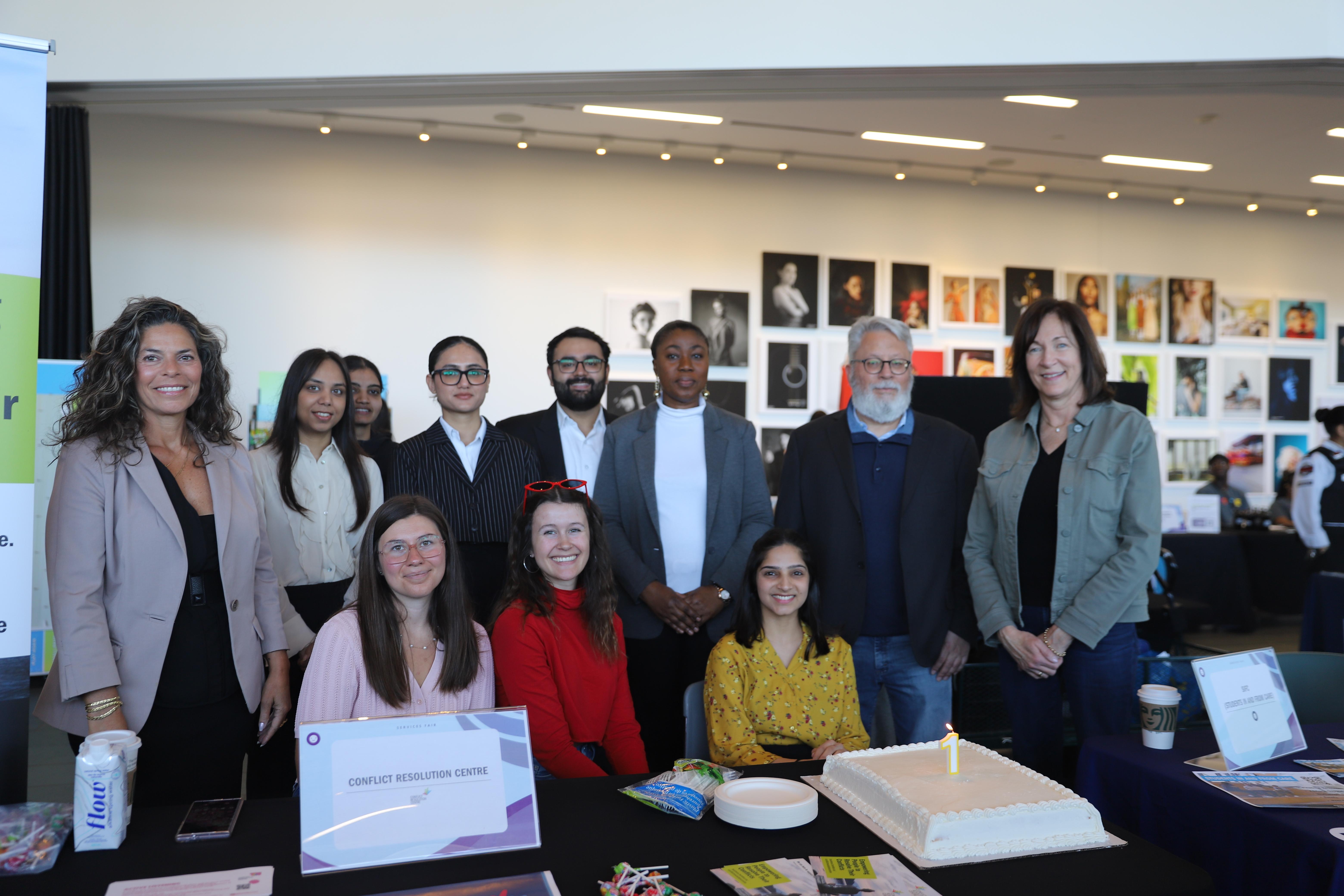
If you’re a Humber student experiencing conflict in your life, the Conflict Resolution Centre (CRC) wants to help.
Mary Lee is a professor and program coordinator with the Alternative Dispute Resolution (ADR) Ontario Graduate Certificate program, which provides the students who work as interns at the CRC. Both Lee and CRC Coordinator Luana Fanelli, a graduate of the ADR program, provide guidance and mentorship for the student interns in the important work they’re doing.
While the CRC holds workshops on conflict resolution throughout the year, including at Orientation, Lee said more and more faculty members are seeing the value in the services they provide and are inviting the CRC team to come and speak to their students at the start of the semester.
Lee notes group work can lead to a lot of conflict. However, working with others is a reality after students graduate and enter their real-world careers so learning to manage conflict and work effectively in a group is important.
“Students need a place to go when they’re experiencing interpersonal conflict,” said Lee. “It could be with their family, their friends, their teachers or someone else and they can come to us and have someone listen to them and provide tips and strategies on how they can resolve these disputes.”
The CRC offers, at no cost, conflict coaching, mediation services and the design and delivery of conflict management workshops.
“Our services have become highly sought after and highly regarded, which is so wonderful to celebrate,” said Lee. “We want students to be aware of this valuable service that’s available to them.”
The CRC, which was started in partnership with TNG/St. Stephen’s Community House, also provides services for external agencies and the community including Toronto Community Housing, Toronto Seniors Housing and The Gatehouse, among others.
While the services provided to the students are important, the experience for the interns is equally valuable. The ADR student interns are required to become certified community mediators before they can work at the CRC. While at the CRC, they gain real-world experience that they can put on their resumes.
“They need that opportunity to work with real-life problems and apply the skills and the theory that they’ve learned in the program,” said Lee. “That allows them to gain confidence and experience that will really assist them in their future careers.”
Hannah Muzzatti, who graduated from the ADR program, said working at the CRC allowed her to gain practical experience by putting skills learned in the classroom into practice.
“This has not only helped prepare me for the workforce, but it has also fostered my connection with Humber and the community through our one-on-one services and conflict management workshops,” said Muzzatti.
“Being an intern at the CRC provided me the unique opportunity to offer conflict coaching before even finishing the ADR graduate certificate program,” added Montana Schott. “This experience gives you a taste of what dealing with real people’s real issues can be like while having the support of the CRC coordinator to guide you.”
Lee said if students file an academic appeal, they are directed by Humber to seek guidance through the CRC. The student will share what’s happening with the CRC staff who will offer options along with strategies to try and address the root cause of the situation.
“Conflict doesn’t always have to be negative; conflict can be positive, and a lot of positive things can happen out of conflict,” said Lee. “We’re trying to change the mindset of students so that conflict doesn’t hold them back. They just need the proper skills and some training on how to constructively deal with it instead of letting it become overwhelming.”
For more information on the Centre, which celebrated its one-year anniversary at the start of May, visit the CRC website.
